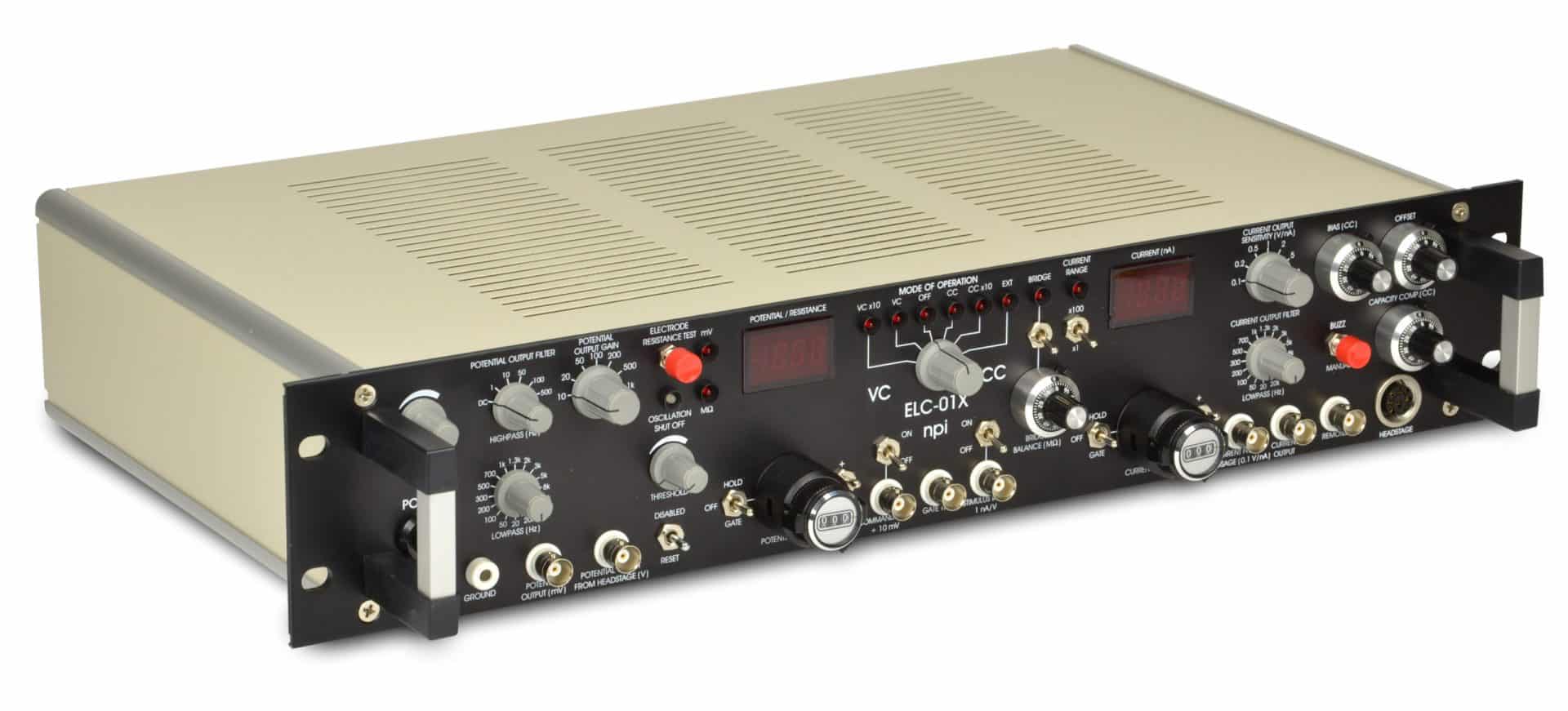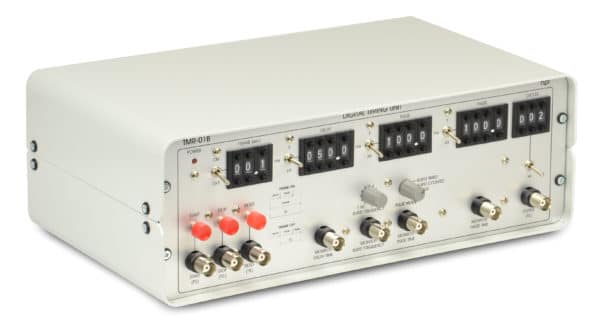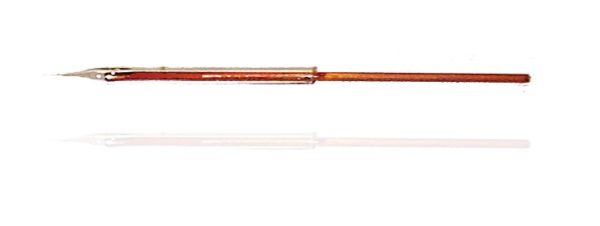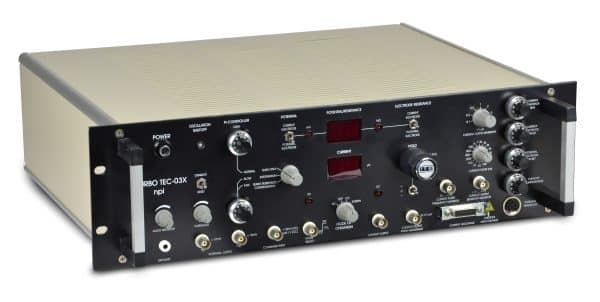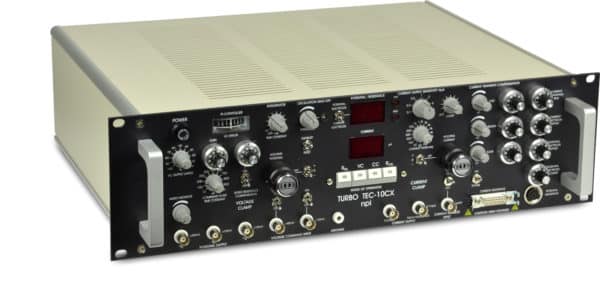About ELC
ELC amplifiers are multi technique systems where researchers can combine traditional patch and microelectrode recording with electrical stimulation, dye application or single cell transfection. All ELC amplifiers enable an investigator to identify a single cell by its characteristic spike train and then electroporate or stimulate this cell in situ. Using the loosepatch clamp technique for recording and stimulation in slice or in in vivo preparations, allow investigations under more natural, i.e. non-invasive conditions. Experiments can be executed with minimal damage to individual cells including subcellular structures such as dendrites and axons. Since no gigaseal is required for these types of experiments, the same pipette can even be used for several cells. The ELC incorporates a unique headstage with a resistive-feedback circuit capable of functioning as follows:
- Patch Clamp headstage with pA sensitivity
- High-impedance electrometer with bridge balance capable of functioning as a conventional bridge amplifier
- Extracellular amplifier with highpass and lowpass filters and gain up to 1000
ELC amplifiers come in 2 versions:
- ELC-01X and the ELC-01MX (modular version) include a simple voltage clamp function for approaching a cell and forming a seal.
- ELC-03XS is a complete patch clamp amplifier for whole-cell and perforated patch with improved series resistance compensation based on abridge balance circuit.
Therefore, ELC-03XS amplifiers offer an unprecedented combination of capabilities with only one headstage compared to other commercial amplifiers with a more limited functional design. Researchers will find this amplifier an excellent and very cost effective solution for carrying out multiple recording techniques while using several stimulation protocols.


